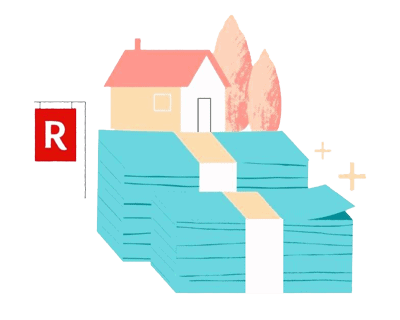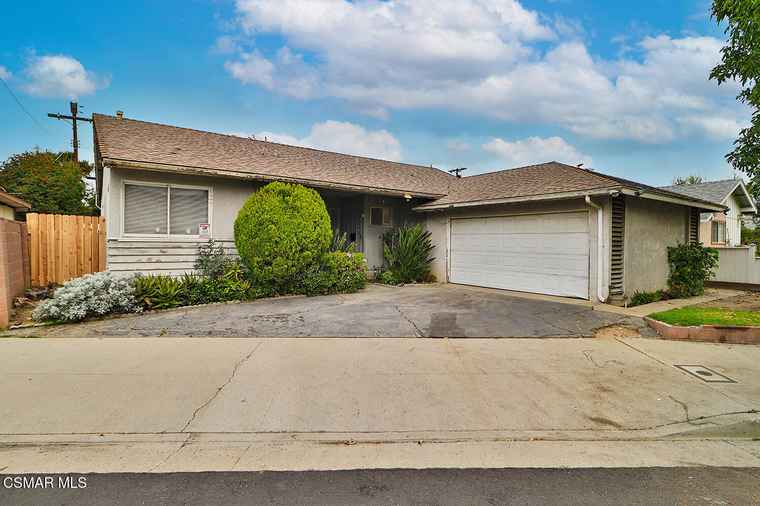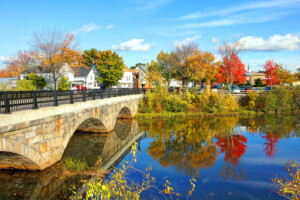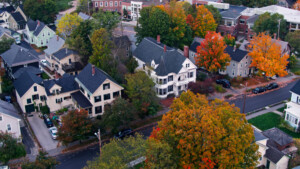You’re just a step away from settling into your new home in New Hampshire, but before you kick back and enjoy those White Mountain views, you’ll need to pay closing costs. These final fees, covering everything from local taxes to loan fees, are the last piece of the puzzle before you can settle into your new place. Knowing what to expect will help you cross the finish line with ease and no surprise expenses. To help you budget for closing costs, this Redfin article will cover how much closing costs are in New Hampshire, who pays for them, and which costs you can expect to pay as a buyer and as a seller.

How much are closing costs in New Hampshire?
Before securing the keys to your new home, homebuyers will need to pay for closing costs. As a general rule of thumb, you can expect closing costs in New Hampshire to add up between 2%-5% of the purchase price. But it’s important to remember that this is just a range and the total amount will depend on a number of factors, such as the buyer’s loan program or negotiations made with the seller.
For example, if you’re buying a home in Manchester, which has a median sale price of $415,000, closing costs could range anywhere from $8,300 to $20,750. Or, let’s say that you’re buying a home in Concord, which has a median sale price of $425,000. Closing costs for a home here could cost you anywhere between $8,500 and $21,250.
Who pays closing costs in New Hampshire?
In most areas, including New Hampshire, both the buyer and the seller will pay closing costs. But the buyer and seller will pay for different closing costs and likely have different total closing cost amounts. Another thing to keep in mind is that buyers typically pay for closing costs out of pocket, while the seller’s closing cost payments are often deducted from the home sale proceeds.
Buyer closing costs in New Hampshire
For homebuyers in New Hampshire, you can expect closing costs to range 2%-5% of the home’s purchase price. In most cases, you’ll pay earnest money, typically 1% to 3% of the home price, upon reaching mutual acceptance in your home purchase. This deposit is subtracted from your closing costs, reducing the total amount due at closing. Below are some of the common closing costs paid for by the buyer:
- Appraisal fee: Home appraisals, which typically range from $300 to $500, are usually paid for separately at the time of the service. However, if not, you’ll need to pay for this at closing.
- Inspection fee Although not required, a home inspection is highly recommended. Home inspections generally range from $300 to $500 in cost and are usually paid at the time of service. However, if not, it will need to be paid at closing.
- Loan origination fee: Most lenders charge a fee for creating your loan. Be sure to check with your lender what this fee covers and if it can be waived or negotiated.
- Loan processing fee: Lenders may also charge a loan processing fee, covering underwriting and related services. Similar to the origination fee, check with your lender to understand its purpose and possible waivers.
- Loan discount points: If you’ve purchased points to lower your interest rate, you’ll usually pay a one-time fee at closing. Each point can lower your rate by 0.25% to 0.5%. Consider your long-term plans, such as how long you plan to own the home or if you plan to re-finance, before purchasing points.
- Private mortgage insurance (PMI): Required for down payments under 20%, PMI might involve an upfront fee at closing, depending on the loan type. It’s usually part of your monthly payment, but some loans offer the option to pay it as a one-time fee.
- Title insurance: Title insurance is a one-time fee paid as part of closing costs. Buyers typically cover both lender and owner title insurance policies.
- Homeowners insurance: Your annual homeowners insurance premium may be included in your closing costs in New Hampshire.
- Homeowners Association dues: If your property is part of a homeowners association, you’ll likely pay one month’s dues upfront at closing. These fees vary and contribute to maintenance and operational costs.
- Property taxes: As part of closing costs in New Hampshire, you may be required to prepay a portion of your property taxes at closing.
Seller closing costs in New Hampshire
The closing costs covered by sellers in New Hampshire can vary, but here are a few common closing costs that sellers pay for:
- Real estate agent commission fees: These fees can be a significant cost for sellers. Commission fees may vary and are subject to negotiation. Sellers should discuss their options with their agent.
- Homeowners Association fees: If the property is part of an HOA, the seller may need to pay a variety of fees. These can include HOA transfer fees, outstanding dues, and possibly a fee for obtaining HOA documents required by the buyer. The exact fees will depend on the HOA’s rules and regulations.
- Property taxes: Any outstanding property taxes will be due at this time. However, if the seller has prepaid property taxes for the period that extends beyond the closing date, they may be credited back for the portion they’ve paid but won’t use.
- Title insurance: As part of closing costs for sellers in New Hampshire, sellers may pay for owner’s title insurance. Typically, this cost is based on the home’s sale price.
Median home sale price data from the Redfin Data Center during July 2024.


























